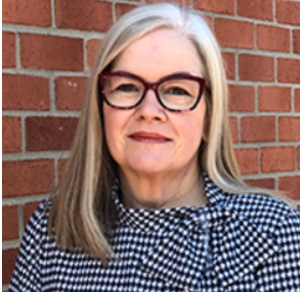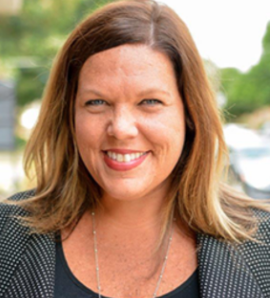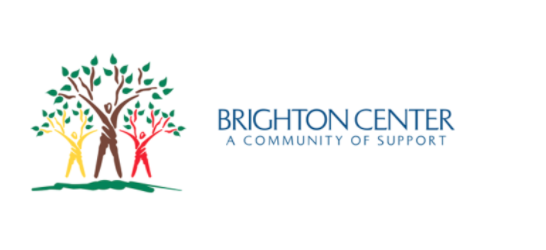Melissa Hall Sommer, Vice President and Talia Frye, Vice President at Brighton Center shared their experience using Family-Centered Coaching to support how they shift power to participants.

Melissa: “Coaches have incredible value because the people they serve have incredible value. When you don’t value the people you serve, you won’t see your own value. At Brighton Center we use coaching as a tool that supports the value coaches and participants already have.“

Talia: “Using Family-Centered Coaching works. After a challenging year of our staff adjusting to necessary changes, the reward was there. We led in the state, getting the highest WIOA outcomes that we’ve ever had. The team has carried this approach and the success has continued. It’s now baked into how we operate.”
As one of the original pilot partners and adopters of Family-Centered Coaching, Brighton Center has successfully shifted their goals and metrics from program-centered measurement to family-centered outcomes. The process of data collection they’ve developed measures their values not just program pre-determined program outputs. They measure if participants feel included, experience equity, and are engaged. They use data to keep growing and better serve families enduring poverty. Part of that process is to offer space for participants to be seen, heard, and valued. This allows for the communication they need to measure their meaningful outcome, identify and remove the barriers standing in the way of prosperity, and inspiring hope and partnership.
Melissa: “The way we capture data, which some folks say are feelings, is with our continuous quality improvement process (CQI). This process is based on data and takes abstract concepts and brings it to life based on the results we’re seeing. For example, if we see one group not reaching what we know they are capable of, we look at things like: How was their attendance? How was their participation? How engaged were they? We define what engagement means for both our staff and our participants. This kind of data allows us to continually adapt and adjust our way of better serving participants.”
Steps to shift power to the participant:
- Acknowledge your power and responsibility to serve. Sometimes we don’t seek power, it is bestowed on us by the nature of the system. Coaches center the families they service and seek to relinquish assumed power. They also actively communicate that to participants. They treat each participant as the greatest expert in their own lives. No matter your qualifications or experience as a practitioner, as a coach you make space for participants to make informed decisions and feel respected.
Talia: “If you don’t even understand or aren’t aware of how you’re being perceived by our customers, it’s a stop sign and you can’t coach them in a real way.”
- Use the mindset of Family-Centered Coaching as your compass. In order to make lasting and sustainable changes within your organization, it is essential to understand both the bigger picture goal and to set up a pathway with tangible steps to reach those bigger organizational goals. Understanding that this process is a commitment and takes time and adaptation allows organizations to use the FCC mindset as a compass, it is both a guide and a goal. Valuing input from participants allows coaching relationships to shift and adapt based on participant input.
Melissa: “We’ve been doing this work for a long time and we’ve learned that this is an endeavor, not an arrival. You have to continually keep it out front. As an organization we have been really mindful and are very deliberate about how we approach things.”
- Encourage practitioners as they develop their own judgement. Over the years of training and integrating Family-Centered approaches, Brighton Center has seen that practitioners who can truly support their clients must have coaching tools accessible to them while also harnessing the ability to discern which tool is right for their clients depending on the participants’ needs. This requires coaches to have a more transformational mindset versus a tool-oriented focus.
Melissa: “We can make people aware of the tools, but when they reach for the same tool for every job, that’s when we have a problem. It’s understanding each tool from the toolkit and making it come alive. You might be a great case manager, that’s awesome, now how are you going to become a really good coach and vice versa.”
- Integrate Family-Centered Coaching into all levels of your organization: Put staff and participants as the drivers of organizational change towards reaching your bigger goals. Shifting the power to the participants and allowing their needs to drive the changes you make within your organization allows for a more integrated approach and changes are made based on the needs of the participants.
Melissa: “We believe that all people are experts in their own lives and that they’re resilient and whole. We have these values, our core values, that drive us, it is embedded in our hiring and how we talk about working here.”
- Be transparent with information and give participants choice: Participants are not always given a choice when they work with Human Services providers. They might be used to other people telling them what is best for them. The holistic approach that FCC offers, where coaches choose which role to play, recognizes that families are most successful when supported by a range of approaches including case management, readiness assessment, and goal-setting. One of the core FCC skills is Asking Permission: being transparent and offering choice by simply asking participants for their consent.
Talia: “We worked as coaches on being upfront with participants at the beginning. Saying, ‘I’m here to work with you. I work for Brighton Center, are you familiar with Brighton Center? We care as much about your career path as we do about your housing and your safety and your family and the dynamics and I want to be able to explore that with you. Are you okay with that?’”
Representation matters: Participants will shut down if they feel like their experiences aren’t valued or seen. Trust is built through the process of participants being seen. Organizations who are not actively working to hire and retain talent that represents the diverse experiences, race, gender, and sexual identities of the participants are missing the opportunity to build meaningful relationships with their participants.
Melissa: “When clients are feeling a microaggression, or they’re feeling minimized, or their experience is not understood, or they don’t feel represented, or they don’t see faces that look like them, there is a barrier that prevents clients from connecting.“
Family-Centered Coaching is a philosophy of respecting the voices and experiences of participants and must be built into your core values and practices to see lasting change. Shifting the power to the participant requires practice and support for coaches, it takes time, it takes aligning your organizational mission and goals with the mindset of valuing participants. Brighton Center has been formative in their approach over the many years of practice.
The Prosperity Agenda provides these resources as the designated national administrator of Family-Centered Coaching.

